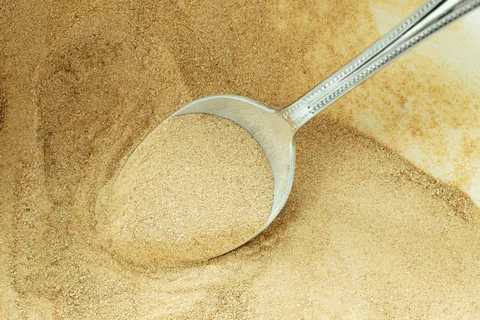
Rich Source of Vitamins and Minerals
Nutrient Composition
Vitamin A
Persimmons are high in vitamin A, essential for vision, immune function, and skin health.
Vitamin C
They provide a significant dose of vitamin C, an antioxidant that supports immune function and collagen synthesis.
Potassium
Persimmons are a good source of potassium, important for heart health, muscle function, and blood pressure regulation.
Fiber
They contain dietary fiber, which aids digestion, promotes satiety, and supports gut health.
Antioxidant Properties
Antioxidant Content
Polyphenols
Persimmons are rich in polyphenols, including flavonoids and tannins, which possess antioxidant and anti-inflammatory properties.
Carotenoids
The vibrant orange color of persimmons is due to their high carotenoid content, including beta-carotene and lutein, which protect cells from oxidative damage.
Heart Health Benefits
Cardiovascular Support
Lower Cholesterol
The fiber and antioxidants in persimmons may help lower LDL cholesterol levels, reducing the risk of heart disease.
Blood Pressure Regulation
Potassium in persimmons helps regulate blood pressure by counteracting the effects of sodium and promoting vasodilation.
Digestive Health Promotion
Fiber Content
Improved Digestion
The dietary fiber in persimmons promotes regular bowel movements, prevents constipation, and supports overall digestive health.
Prebiotic Effects
Fiber acts as a prebiotic, feeding beneficial gut bacteria and promoting a healthy gut microbiome.
Skin Health Enhancement
Collagen Synthesis
Vitamin C
Persimmons’ high vitamin C content supports collagen synthesis, which is essential for skin elasticity, wound healing, and overall skin health.
Antioxidants
The antioxidants in persimmons help protect the skin from oxidative stress and premature aging caused by UV radiation and environmental factors.
Weight Management Support
Low Calorie Density
Satiety
Despite being sweet and flavorful, persimmons have a low calorie density, making them a satisfying snack or dessert option for weight management.
Fiber Content
Fiber promotes feelings of fullness and satiety, reducing overall calorie intake and aiding in weight loss or weight maintenance efforts.
Cancer Prevention Potential
Anticancer Properties
Antioxidants
The antioxidants in persimmons, such as polyphenols and carotenoids, have been linked to reduced cancer risk by neutralizing free radicals and inhibiting tumor growth.
Anti-Inflammatory Effects
Chronic inflammation is associated with cancer development, and persimmons’ anti-inflammatory properties may help reduce cancer risk.
How to Enjoy Persimmons
Fresh Consumption
Enjoy ripe persimmons fresh as a delicious snack or dessert.
Add sliced persimmons to salads, yogurt, or oatmeal for a sweet and nutritious twist.
Incorporate persimmons into smoothies or fruit salads for added flavor and texture.
Culinary Uses
Use persimmons in baked goods such as cakes, muffins, or bread for natural sweetness and moisture.
Make persimmon jam, compote, or chutney to spread on toast or accompany savory dishes.
Include persimmons in fruit tarts, pies, or crisps for a seasonal dessert option.
FAQs on Persimmons
Are there different varieties of persimmons?
Yes, there are two main types of persimmons: astringent and non-astringent. Common varieties include Fuyu (non-astringent) and Hachiya (astringent).
How do I know when a persimmon is ripe?
Ripe persimmons should be soft to the touch and have vibrant coloration. Non-astringent varieties can be eaten when firm, while astringent varieties should be fully ripe and soft before consuming.
Can persimmons be eaten with the skin?
Yes, persimmon skins are edible and contain valuable nutrients and fiber. However, some people prefer to peel them before consumption.
Are persimmons suitable for individuals with diabetes?
Yes, persimmons can be enjoyed in moderation as part of a balanced diet for individuals with diabetes. Their natural sweetness should be accounted for in overall carbohydrate intake.
How should persimmons be stored?
Ripe persimmons can be stored at room temperature for a few days. To extend their shelf life, refrigerate them in a plastic bag for up to one week.
Can persimmons cause allergic reactions?
While rare, some individuals may be allergic to persimmons. Allergic reactions may include itching, swelling, or hives. If you suspect an allergy, discontinue consumption and consult a healthcare professional.
Are there any potential side effects of consuming persimmons?
Excessive consumption of persimmons, particularly astringent varieties, may cause gastrointestinal discomfort or diarrhea due to their tannin content. Enjoy them in moderation to avoid adverse effects.
In conclusion
persimmons are not only delicious but also offer a plethora of health and nutrition benefits. From supporting heart health and digestion to enhancing skin health and aiding weight management, these vibrant fruits are a nutritious addition to any diet. Whether enjoyed fresh, incorporated into recipes, or used in culinary creations, persimmons are a versatile and flavorful ingredient that can be savored in various ways. Include them in your diet to reap their numerous health benefits and add a touch of sweetness to your meals and snacks.
- Vista Edge Vape Vs Storz & Bickel: Which Premium Vape Reigns Supreme? - May 31, 2025
- Nu-Derm Skin System Near Send, Surrey - May 31, 2025
- Xela Rederm Skin Booster Treatments In Kingston Upon Thames KT1 - May 31, 2025

